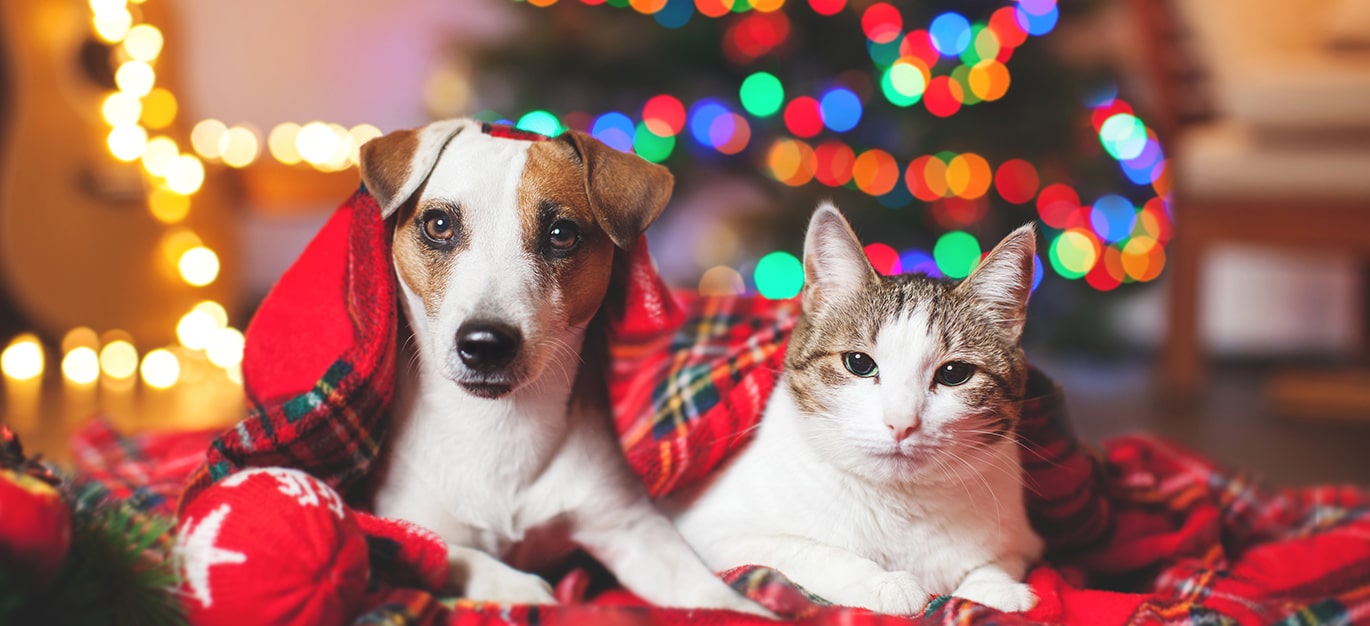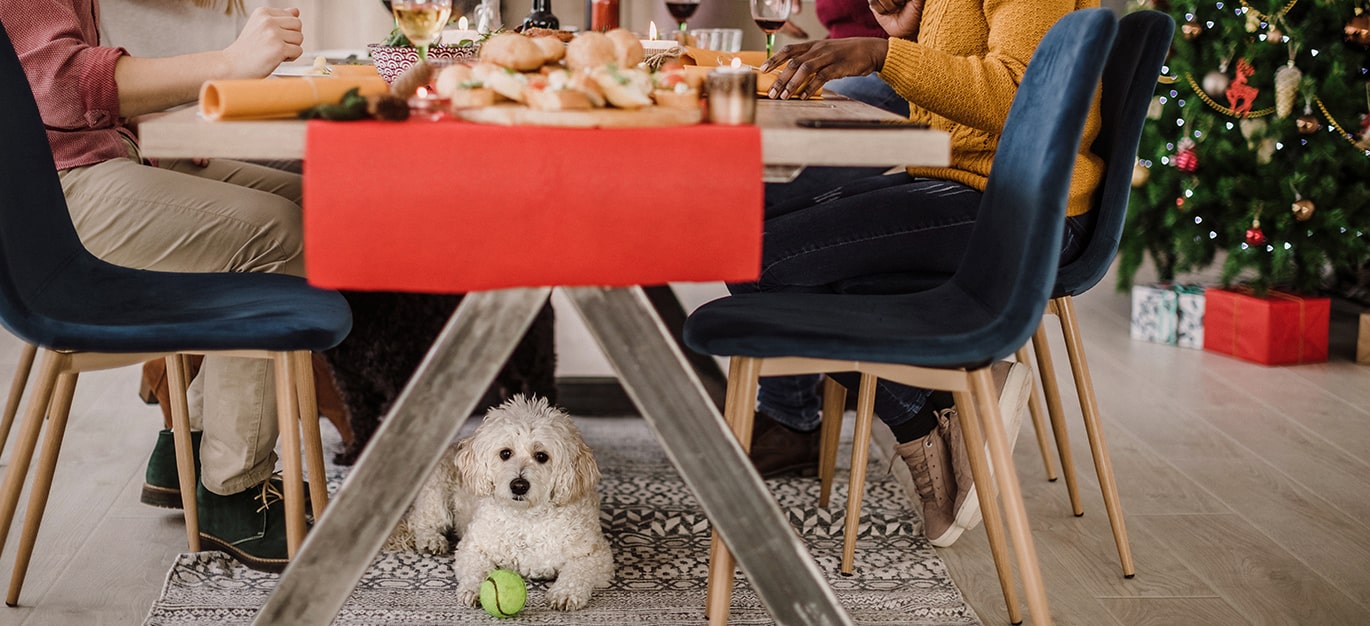Sorry about that! It looks like we’ve run out of stock for that product. Sign in below and we’ll send you an update when it’s back in stock.
20% DISCOUNT on your first order! Use the discount code "IMNEW20" at checkout!
The festive season is a joyful time for families, but it can also pose unexpected dangers to our furry friends. While decorating the tree and preparing holiday feasts, it’s important to keep in mind the potential hazards for dogs. From toxic foods to dangerous decorations, Christmas can be a risky time for pets. Here are the top 10 things to keep away from your dog this Christmas and how to ensure they have a safe, happy holiday season.
Christmas brings many changes to the home environment, from unfamiliar decorations to rich, tempting foods. These new additions can be confusing—and potentially harmful—to dogs. Holiday plants, certain foods, and festive decorations can all pose a risk to your pet’s health, while the general hustle and bustle can increase their stress levels. Being aware of these dangers is the first step toward ensuring a safe holiday for your pet.
Beyond physical hazards, the constant movement of guests, loud noises, and changing routines can stress dogs. One way to help your dog stay calm during the holidays is by maintaining their routine and considering a raw food diet, which can support overall health and keep them calm.

Chocolate is one of the most well-known hazards for dogs. It contains theobromine, a substance toxic to dogs that can cause vomiting, diarrhea, seizures, and even death. Besides chocolate bars, watch out for other sweets like chocolate-covered nuts and cookies, which are just as dangerous.
Onions and garlic, commonly found in chistmas dishes like stuffing, soups, and gravies, are harmful to dogs. These ingredients can cause anemia by damaging your dog’s red blood cells. Keep dishes containing these ingredients far out of reach.
Christmas puddings, mince pies, and fruitcakes are packed with raisins, sultanas, and currants, which can cause kidney failure in dogs—even in small amounts. If your dog consumes any of these foods, contact your vet immediately.
Alcohol is another common item during Christmas celebrations that is highly toxic to dogs. Even small amounts can cause hypoglycemia, seizures, and coma. Be sure to keep all alcoholic beverages, including festive cocktails and eggnog, out of reach.

Many holiday plants are beautiful but dangerous for dogs. Mistletoe, poinsettia, and holly can cause symptoms ranging from vomiting and diarrhea to more severe reactions like difficulty breathing. Other dangerous plants include Amaryllis and Christmas Cactus. Consider using artificial plants or pet-safe floral arrangements as safer alternatives.
Decorations like fragile ornaments, tinsel, and electrical cords can pose significant risks. Ornaments can break and injure your dog, while tinsel can cause digestive blockages if swallowed. Electrical cords, if chewed, can result in electric shock. To prevent accidents, keep breakable ornaments higher up on the tree and secure cords with protective covers.
Wrapping paper, ribbons, and other packaging materials can be a choking hazard for dogs. If ingested, they can cause serious internal blockages. Make it a habit to clean up wrapping materials as soon as presents are opened to prevent curious dogs from swallowing them.
While it might be tempting to share leftovers with your dog, cooked bones can splinter and cause internal injuries. Fatty meats like ham can trigger pancreatitis, a painful and serious condition. Instead, offer raw bones, which are safer and healthier for raw-fed dogs.
Seasonal meals often contain spices and seasonings like nutmeg, which is toxic to dogs, and cinnamon, which can cause irritation. Opt for plain, unseasoned foods like turkey or mashed sweet potatoes as safe treats for your dog.
Yes, plain turkey is safe for dogs in moderation, as long as it is unseasoned and boneless. Avoid giving them skin or fatty pieces, which can upset their stomach.
Foods like chocolate, raisins, onions, garlic, and alcohol are all toxic to dogs. Keep these foods well out of reach during your holiday celebrations.
Signs include vomiting, diarrhea, excessive drooling, lethargy, and changes in behavior. If you notice any of these symptoms, contact your vet right away.
Christmas is a time for celebration, but it’s also a time to be mindful of your dog’s safety. By keeping dangerous foods, decorations, and plants out of reach, you can help your dog enjoy the holidays without risk. Always have an emergency plan in place, and consider safer alternatives to common holiday hazards. With these precautions, you and your pet can have a joyful, stress-free holiday season together.